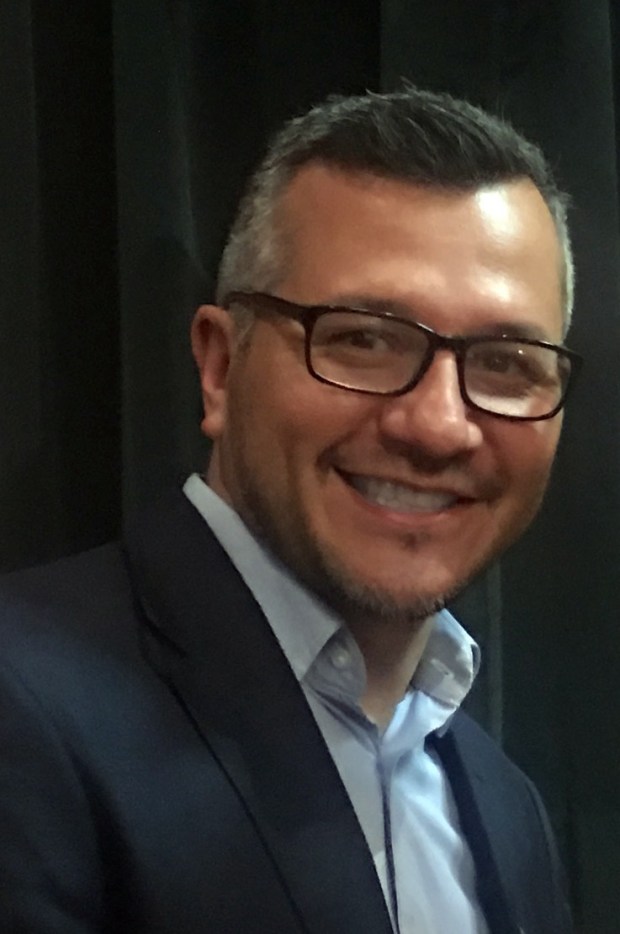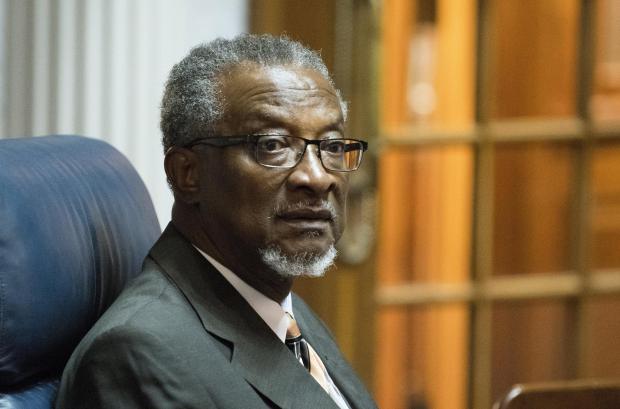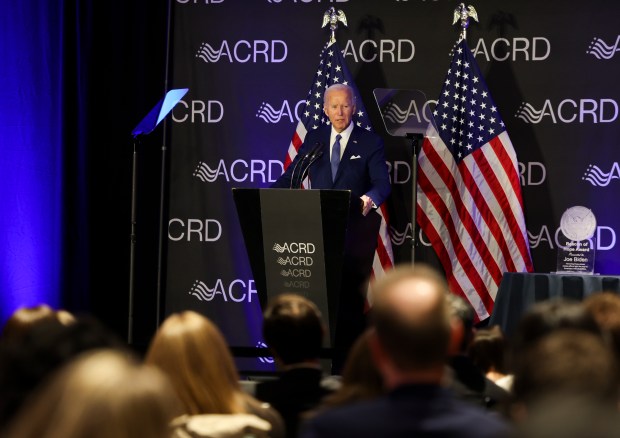A Hammond small business owner is challenging a seasoned senator for the chance to serve in the Indiana Statehouse come January.
Humberto Prado, of Hammond, is running against five-term Democratic incumbent State Senator Lonnie Randolph for the District 2 seat that covers Whiting, East Chicago, Hammond and Munster. Randolph, 75, believes he’s the oldest state senator currently serving, and a victory would mean his fourth consecutive term; Prado, 47 and a Republican, has run for Mayor of Hammond previously, he said.
Prado, 47, said he chose to run because after nearly 20 years of Randolph in office, it’s time for a change, particularly in Hammond, where the School City of Hammond’s financial crisis sent shockwaves over the city. He said the General Assembly needs “leadership that empowers our schools, not shut them down.”
Sen. Lonnie Randolph, D-East Chicago.
Randolph, who views his and his Democratic colleagues’ role in the General Assembly as “the noisemakers” since there’s little they can get done against the supermajority, said he’s also concerned about education, namely the changes to high school diplomas this past session. He’s been encouraging constituents to voice their opinions before November 9, when public comment regarding the diplomas closes.
“It was really kind of shocking how (the General Assembly) came up with those changes,” Randolph said. “What was the problem with it in the first place? I can’t answer that because we don’t know what it is. But we do know that the colleges and universities weren’t included in the conversations, and now, none of them will accept these new diplomas.”
The initial proposal in March created a backlash with state college officials saying the diploma wouldn’t meet their admission standards. But a revised draft, which created a base diploma, was supported by university officials and it calls for one base diploma that students can earn “readiness seals” aligned with their chosen career pathway.

Prado said he supports the recent diploma overhaul by the Indiana Department of Education.
“Under the updated draft, students can now earn ‘readiness seals’ in categories like enrollment, employment, or enlistment, depending on their future goals — whether that’s higher education, joining the workforce, or military service,” he said. “These seals, which come in two levels — honors and honors plus — provide a more tailored education path for students, ensuring they are prepared for whatever career they choose, and the new baseline diploma is supported by Ball State, Indiana, Indiana State and Purdue universities, as well as Ivy Tech Community college.”
Prado said he also strongly supports expanding vocational and trade options, and would continue to “advocate for partnerships between schools, unions, trade programs, and businesses to ensure that students are graduating not just with diplomas, but with the readiness to succeed in their chosen path — whether that’s college, entrepreneurship, a skilled trade, or serving in the military.”
Property taxes will likely be tackled this long session as well, Randolph said, and with the three gubernatorial candidates coming in with three different ideas for how to fix them, it’s not going to be an easy task.
“The 1-2-3 (tax cap) model we voted into the Indiana Constitution might have been good at the time, but we’re going to have reevaluate it,” he said. “Our school corporations have been the biggest victims of that change, and we have a duty to provide them money.”
The nearly $900 million Medicaid shortfall of the Family and Social Services Administration is probably the biggest issue, however, Randolph said, and he’s frustrated that the budget committee who created the mess won’t admit it made an error.
“What’s going to happen is we may need to talk about an additional tax,” he said. “It’s going to be a very rough session.”
Prado, meanwhile, said that the state needs to bolster public safety, “particularly addressing the rise in crime from out-of-state offenders crossing over from Illinois into Indiana.”
“Our communities are being impacted by this, and I believe we need stronger collaboration between law enforcement agencies across state lines,” Prado said. “If elected, I will push for policies that enhance our law enforcement’s ability to combat this issue and ensure Indiana residents are protected from external threats.”
Prado also said he’ll advocate for policies “that help local businesses thrive by reducing unnecessary regulations and providing access to resources and training for entrepreneurs.”
Both candidates said they believe the state’s election processes are fair and correct for all candidates, and neither will challenge the outcome of their race.
Michelle L. Quinn is a freelance reporter for the Post-Tribune.




